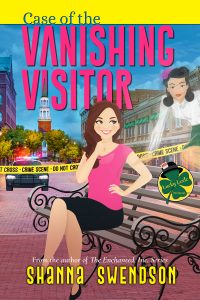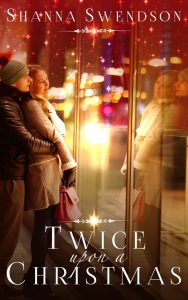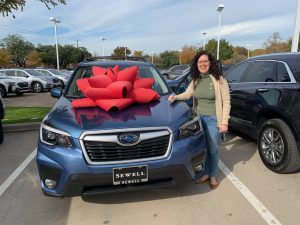movies
Sticking the Landing, Part 1
I noticed that Four Weddings and a Funeral was leaving Prime at the end of last month and decided to watch it, since I hadn’t seen it in forever, and that led to me rewatching Notting Hill, and both of these movies made me think about how important it is to stick the landing and have a satisfying ending to a story. I enjoy both of these movies, but then the endings fall flat for me and leave me with an unfavorable impression of the whole movie. Since I have a lot more experience as a writer than I had the last time I saw these films, I thought I’d dig into why these endings don’t work for me. In order to discuss the ending, I have to give away the ending, so spoilers.
Four Weddings came out at just the right time for me, when I was in a phase in which most of my social life revolved around wedding-related events. It seemed like every other weekend I was either at a wedding, at a bridal shower, or at an engagement party (a couple of times I was actually at an engagement, as the guy set it up to have all the friends around as a big surprise). A movie about running into people at weddings pretty much reflected my life (though these mostly weren’t big, fancy weddings, and I never got to wear a stunning hat). And then we hit the ending, and I left the theater going, “What?” I think a lot of that was because I was writing category romances at the time, and it was a pretty clear rule that if a character was a commitmentphobe in the beginning of the story, he had to make a big, public commitment at the end. The Notting Hill ending would be more apt for this movie (and more on that in the next post, since just dealing with Four Weddings requires a long post). Having the couple just agree not to marry each other but still be in a relationship made things just sort of fizzle out. I also wasn’t crazy about Charles ending up with Carrie after she essentially strung him along through the whole movie. The more usual romance would have had him learning the error of his ways from seeing the way Carrie acted and then finding real love with someone else, like maybe the friend who’d been in love with him all along. But as it was, no one learned anything. There was no sense of anyone growing, no character arc, and a romcom without a character arc is just a story with funny lines and some kissing.
But I think there’s more to the issues I have with the ending, and watching the Cinema Therapy guys’ take on Love Actually just before Christmas helped me realize it, since there are threads in Love Actually that show up in this movie, too. Mostly, both of these films have a pretty shallow take on love. It’s all about the thunderbolt at first meeting, not about getting to know each other and developing anything deeper. It’s even a plot point that most of these people haven’t actually talked much to each other. They can’t possibly be in love, since they don’t actually know each other. Both films involve someone confessing their love to someone who’s in a committed relationship, though at least in this case the person isn’t married to their best friend. Here, he’s slept with her twice, but the only conversations we’ve seen between them are about how sexually forward she is. Both movies also involve someone who learns a new language to be able to communicate with someone they’re attracted to, though in this case it happens early in the movie and presumably they communicate with each other a bit before we see them getting married in the epilogue montage rather than them getting engaged in their first conversation in which they can understand each other. Still, she decides to learn sign language to communicate with him purely based on his looks, with no idea whatsoever of what kind of person he is (though I guess she needs the sign language to learn what kind of person he is).
Really, though, all the relationships are pretty shallow. I love the group of friends, but we don’t actually see much of them together acting like friends (I’d have preferred to follow the group to the castle rather than following Charles to chase after Carrie). They tell us the gay couple has a true, deeply committed relationship that’s essentially a marriage (in the time before that was legal), but we don’t see any of that beyond one domestic moment during the opening credits and the depth of emotion at the funeral. They tell us that Fiona has always been in love with Charles, but we never see her acting like she cares about him at all.
The more typical rom-com formula probably would have had Charles realizing that while he’s been looking for the thunderbolt to shock him out of his fear of commitment, someone who really loves him has been there all along and his fear has kept him from seeing her. I get the urge to upend the formula, to not have him realize that pining after Carrie has given him an excuse not to commit and not have him realize that his close friend was right for him all along, but if you’re going to upend a trope, what you come up with has to be better and more satisfying than the trope would have been, and two commitmentphobes choosing to not get married (but be together) was somewhat less than satisfying.
There was a lot said at the time this movie came out about Hugh Grant’s floppy-haired British charm, but his character is actually kind of a jerk in this movie when I rewatch it during Hugh Grant’s jerk/villain phase (I rewatched Honor Among Thieves last weekend). He’s shown sympathetically, but this is someone who can’t be bothered to be on time with the rings for a wedding where he’s the best man. He ditches his friends for a woman he’s just met. He ditches plans with his brother to chase after a woman. He mocks his ex-girlfriends to his current girlfriend, then mocks her to the next girlfriend. He sleeps with an engaged woman. He jilts a woman at the altar. This isn’t really a romantic hero.
I still enjoy the movie. I just wish it could take the ingredients of a brilliant cast and witty dialogue and do something better with them. As it is, it’s a really shallow view of love and relationships, and the shallow characters don’t really gain any depth or grow during the movie.
Richard Curtis does improve in Notting Hill, but he still doesn’t stick the landing. More on that next time.

 When I wrote Case of the Vanishing Visitor, it was inspired, in part, by the story about Agatha Christie’s disappearance during the 1920s. Her car was found wrecked in a remote place, her suitcase and driver’s license were in it, but she was nowhere to be found. There was a massive search for her, during which it came out that her husband was having an affair and leaving her for another woman. She was later found in a spa hotel about 200 miles away, registered under a different name (using the last name of her husband’s mistress). She claimed that she’d lost her memory, didn’t remember the accident or how she got to the hotel, and for much of the time she was there she didn’t even know who she was.
When I wrote Case of the Vanishing Visitor, it was inspired, in part, by the story about Agatha Christie’s disappearance during the 1920s. Her car was found wrecked in a remote place, her suitcase and driver’s license were in it, but she was nowhere to be found. There was a massive search for her, during which it came out that her husband was having an affair and leaving her for another woman. She was later found in a spa hotel about 200 miles away, registered under a different name (using the last name of her husband’s mistress). She claimed that she’d lost her memory, didn’t remember the accident or how she got to the hotel, and for much of the time she was there she didn’t even know who she was. My book Twice Upon a Christmas actually started as my attempt to write a screenplay for one of these movies. I decided I didn’t want to deal with trying to figure out how to get a film agent and sell the screenplay, so I rewrote it into a novel. Every year or so my agent gets a nibble from a production company, but nothing’s ever come of it. I was targeting Freeform, and they’re one of the ones that nibbled, so I figure I was on target. I keep saying I need to write another one, but I only really want to write that sort of thing around the holiday season, so it takes planning my work schedule in advance. This year, I’m working on a different project, but maybe I’ll plan next year to write a Christmas rom-com, and then it’ll be ready for the year after that.
My book Twice Upon a Christmas actually started as my attempt to write a screenplay for one of these movies. I decided I didn’t want to deal with trying to figure out how to get a film agent and sell the screenplay, so I rewrote it into a novel. Every year or so my agent gets a nibble from a production company, but nothing’s ever come of it. I was targeting Freeform, and they’re one of the ones that nibbled, so I figure I was on target. I keep saying I need to write another one, but I only really want to write that sort of thing around the holiday season, so it takes planning my work schedule in advance. This year, I’m working on a different project, but maybe I’ll plan next year to write a Christmas rom-com, and then it’ll be ready for the year after that.